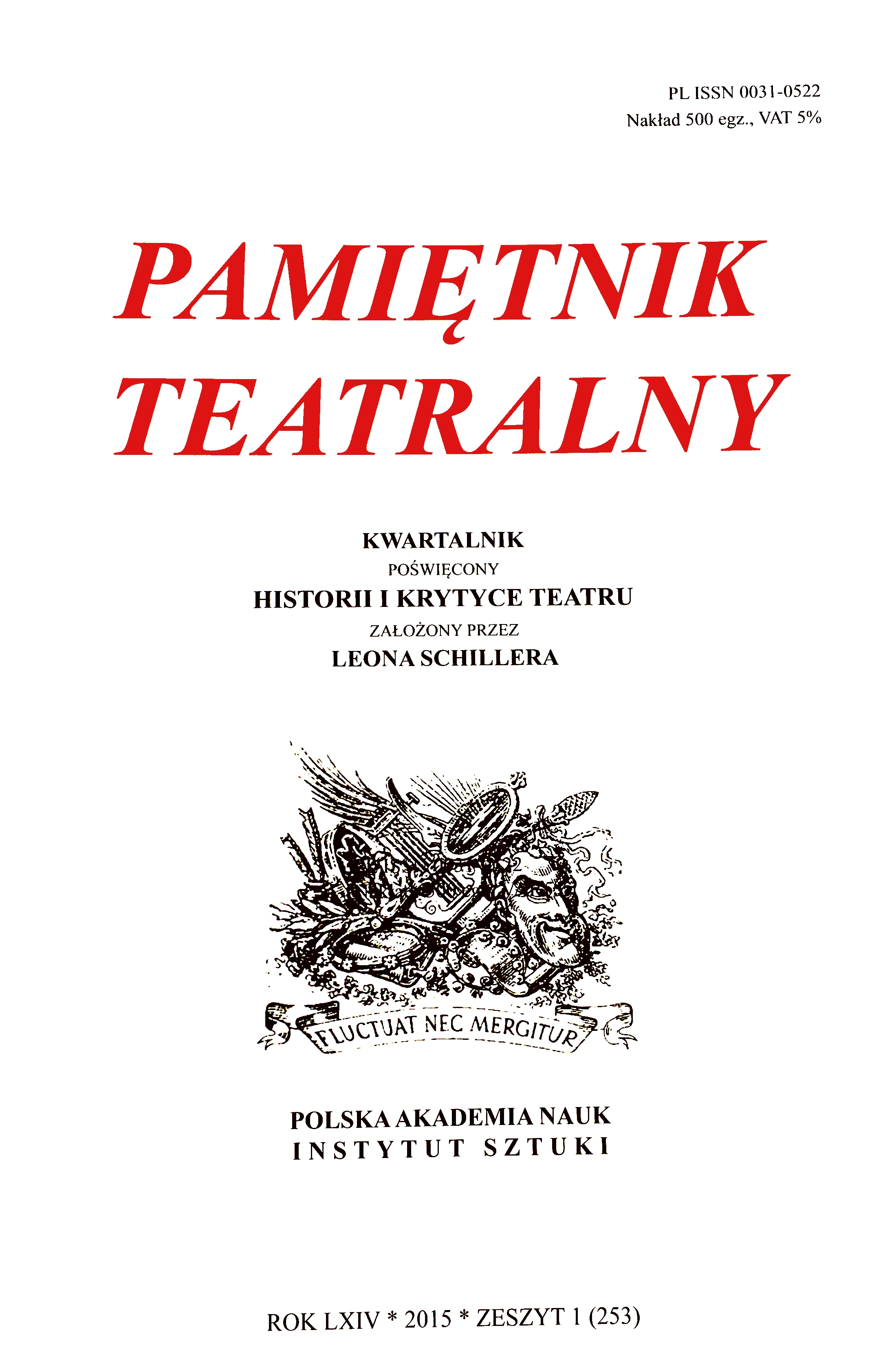Non stop dla gender w teatrze
No Stopping of Gender in Theatre
Author(s): Krystyna DuniecSubject(s): Theatre, Dance, Performing Arts, Sociology of Art
Published by: Instytut Sztuki Polskiej Akademii Nauk
Keywords: thearte studies;gender studies;feminism
Summary/Abstract: Contemporary theatre, as it is conceived by theatre criticism, nowadays forces theatre scholars to apply feminist and gender theories. Gender-theory interpretation of Polish theatre tends to be sociologically oriented as well as interdisciplinary, multi-discursive, methodologically transgressive, whereas its symbolic paradigm is individualistic rather than universalistic, sub-jective rather than global and objective, and fragmentary rather than linear. The most popular in the theatre of today is Judith Butler’s theory of gender performativity, which employs thea-tre-related categories. Thus, theatre, moving towards gender and sexual identity discourse, has become a training area for emancipatory struggles, infecting theatre research with the gender virus. Abject-focused strategies promoting that which is rejected, excluded or culturally stig-matised result in constructing a physiological aesthetic exposing human frustrations, hidden obsessions and secret yearnings onstage. Liberated from the duty of representation, the theatre has come to think that the world is made up of bodies that are mostly non-normative, ignored, persecuted, weak, injured, colo-nised, and therefore always political. It uses the figure of desire either as a prime vehicle of emancipation or as a principle of a post-transformational political narrative about Poland after the collapse of Communism, which inscribes gender strategies in the area of political economy and neoliberalism. Identity constructivism in theatre makes it possible to subversively shield normativeness of the theatre itself. So, for example, in Apocalypsis cum figuris by Grotowski one can see a parable on patriarchal ideology. Queer and gender studies while dismantling the violence of sexual identity myths defuse civilisation mythologies as well, thus placing theatre in the domain of postcolonial criticism. Therefore, if queer theory is conceived not only as a current of gender studies but also as a theory of social difference, it turns out to be an instru-ment of cultural criticism, a revolutionary strategy opposed to neoliberal culture.
Journal: Pamiętnik Teatralny
- Issue Year: 253/2015
- Issue No: 1
- Page Range: 62-76
- Page Count: 14
- Language: Polish

